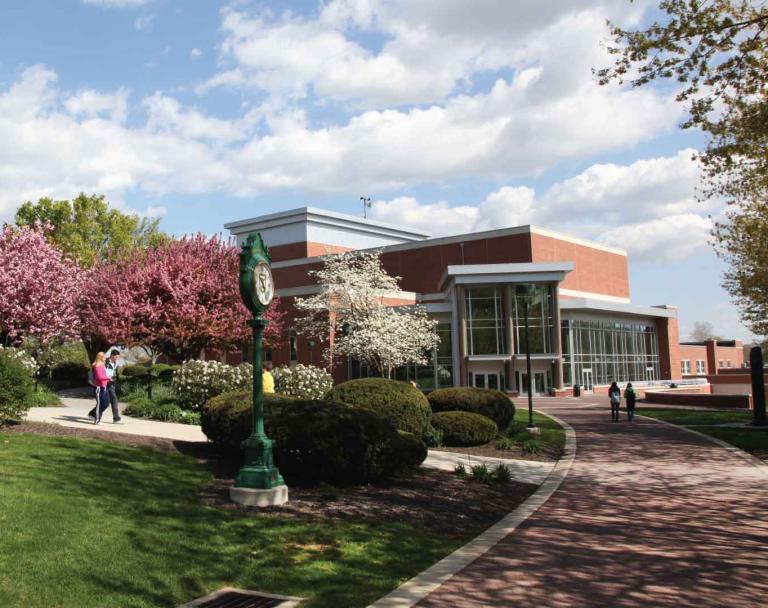On the Ground: Hands-On in the Nursing Simulation Lab

On the Ground: Hands-On in the Nursing Simulation Lab
April 07, 2022At first glance, York College of Pennsylvania may look like a typical campus in a typical college town—but look a little closer, and you’ll discover a community full of hidden (and not-so-hidden) gems. In our On the Ground series, we explore some of YCP’s most beloved places and spaces with help from our own Spartan students.
Entering the Nursing Simulation Lab at York College, Nursing students experience a real-world setup of what they’ll encounter in the field. From day one of class, they are immersed in healthcare scenarios designed to prepare them for their career.
Mannequins of model patients, ranging in age from newborn to adult, rest in hospital beds and are readily available to help students get practice in a safe, low-pressure environment. Monitors, devices for measuring vital signs, and other tools are also available in the “Sim Lab,” offering students the opportunity to see professional medical equipment in action.
Junior Nursing major Taryn Smith says the lab is a safe way for her to make mistakes now, rather than in the field. “We experience real-life scenarios on mannequins, such as a patient coding (essentially, having their heart rate become dangerously slow), all while in the safety of our professors and peers.”
The lab not only serves as a classroom, but it gives students realistic experiences that prepare them for scenarios they will face in their careers. “We are able to develop quick-thinking skills that cannot be taught in a traditional classroom setting,” says Taryn. “It is a place where mistakes are truly just learning experiences.”
The practical experience in the safe setting of the lab teaches students to step out of their comfort zone. Some, like Taryn, even find their voice as a leader. “I found myself being able to take charge at certain times, and that is a trait I will continue to utilize during my career,” she says.
In preparation for a real-world emergency, students learn by simulating scenarios that could potentially happen in the field. The environment is controlled, and Taryn has seen firsthand that “all roles in emergent situations are equally important—some thrive off of being the event recorder, while others roll up their sleeves and get in on the action.” Students find their niche and can also strengthen the areas they need to work on.
YCP Nursing students spend class time in the lab every semester and come to appreciate the value of this space. The scenarios they practice revolve around the specific course they are taking at the time. “We learned how to do the fundamental adult assessments while in the Health Assessments course, how to manage an uncontrolled pediatric asthma attack, and what to do in a suspected child abuse scenario,” says Taryn.
She stresses how important it is for students to have this kind of practice in the safe environment of York College’s Nursing Simulation Lab before entering the workforce. “Without practice, no student nurse knows what to do when a patient’s blood oxygen level begins to decline, or how to quickly draw up life-saving medications while under high stress.”
The Nursing junior will be completing a 12-week internship at Reading Hospital this summer. She will gain experience in the Tower Health Emergency Room—one of the top 10 busiest ERs in the country. She aspires to continue her education and become a Nurse Practitioner in a Pediatric Emergency Room. She knows that her time in the Sim Lab will help her reach these goals.
“The Sim Lab is where you learn, succeed, and, without a doubt, sometimes fail,” Taryn says. She advises other Nursing students beginning their education “to not let the Sim Lab intimidate you. Go in with your best attitude and roll with the punches––that is how you will have the best learning experience!”
The Nursing Simulation Lab complements a Nursing student’s clinical experience. Classes in the lab simulate practice of real-world scenarios designed to prepare students for a successful career after graduation. Students are free to make mistakes where they will have the opportunity to receive immediate feedback and learn from those mistakes. Other benefits include practicing psychomotor skills, increasing confidence prior to interacting with live patients, and practicing unusual, critical, and emergency events.
Categories
